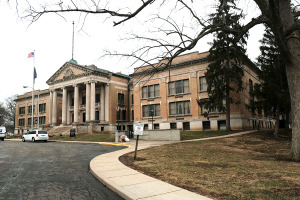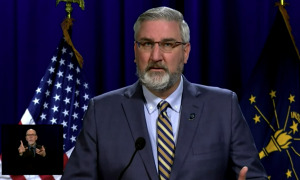Holcomb vetoes state agency rulemaking bill
Indiana Gov. Eric Holcomb issued his first veto of this year’s legislative session on a bill that would have put some restrictions on state agency rulemaking procedures, the governor’s office announced Wednesday.







